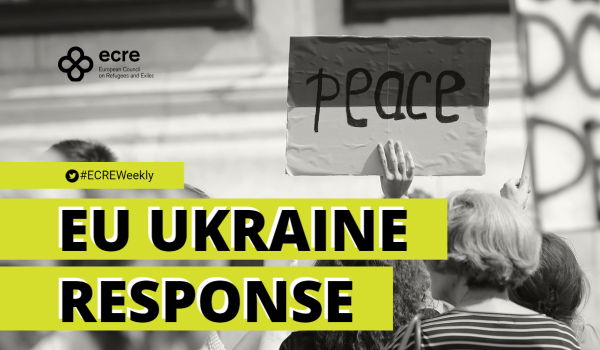The European Commission adopted the Flexible Assistance to Territories Package (FAST – CARE) on 29 June, a new set of legislative and non-legislative proposals that aims to strengthen support to EU Member States in response to Ukraine displacement, by making Cohesion Policy funds more accessible and flexible. The proposal complements the adopted Cohesion’s Action for Refugees (CARE) and successive packages. In addition to providing more flexibility and pre-financing opportunities, the legislative changes require that 30% of the funding support is granted to local authorities and civil society organisations.
The proposed package consists of legislative amendments to the Common Provision Regulation that target cohesion policy funds and pre-financing measures, as well as non-legislative measures that support stakeholders and authorities managing EU funding in Member States with upcoming guidelines on the closure of projects 2014 – 2020 and further technical guidance on contract modifications.
Among the novelties, the legislative proposal provides additional pre-financing for an amount of €3.5 billion for programmes supported by the European Regional Development Fund (ERDF), European Social Fund + (ESF+) and Cohesion Fund. This financial support supplies immediate liquidity to Member States, and is supplementary to a similar amount that has been made available under previous changes to EU funding. Furthermore, a co-financing rate of up to 100% for activities promoting the socio-economic integration of third-country nationals will be possible under the 2014-2020 and 2021-2027 programming periods, at least until the next review of the provision in 2024. Member States will also benefit from extra flexibility to interchangeably use the unspent resources from the 2014-2020 Cohesion Fund – in addition to ERDF and ESF+ already allowed under CARE – to finance projects irrespectively of their traditional eligibility scope. Other changes include the increase of the unit cost for temporary protection beneficiaries -a simplified way to calculate project costs-, from €40 to €100 per week for 26 weeks.
On top of that, Member States are required to dedicate at least 30% of the financial allocation under the relevant priorities to local authorities and civil society organisations operating in local communities. This will also apply to operations focused on socio-economic integration of third-country nationals under the 2021-2027 budget cycle. Member States are asked to report on the fulfilment of this condition in their final performance reports, and reimbursements by the Commission will depend on the actual implementation of this requirement. This is an important opportunity in a context where access to EU funding remains extremely challenging for civil society organisations, including for the Ukraine response.
The proposed legislative changes need the endorsement of the Council and the European Parliament, which may come after the summer between September and October. These proposals complement the first series of packages that were already expected to release funding for up to 20 billion euros, including resources disbursed via Emergency Assistance, pre-financing and AMIF or cohesion funds’ national programming. So far, Member States have been able to commit only 1 billion euros from the CARE package – with none or little of these resources having reached civil society organisations. This is likely due to difficult absorption capacity, unavailability of funding from 2014-2020 in certain Member States, and limited capacity of the managing authorities to engage in re-opening national plans in a particularly busy time for the programming phase of the next 7-year budget for DG HOME and cohesion funds, which have been significantly delayed in light of Ukraine displacement.
For further information:
- ECRE, ECRE-Ukraine-messages, June 2022
- ECRE, ECRE Editorial: Better, Bad, Worse, Worst Approaches? The Asylum Reforms after “Ukraine”, June 2022
This article appeared in the ECRE Weekly Bulletin. You can subscribe to the Weekly Bulletin here.

